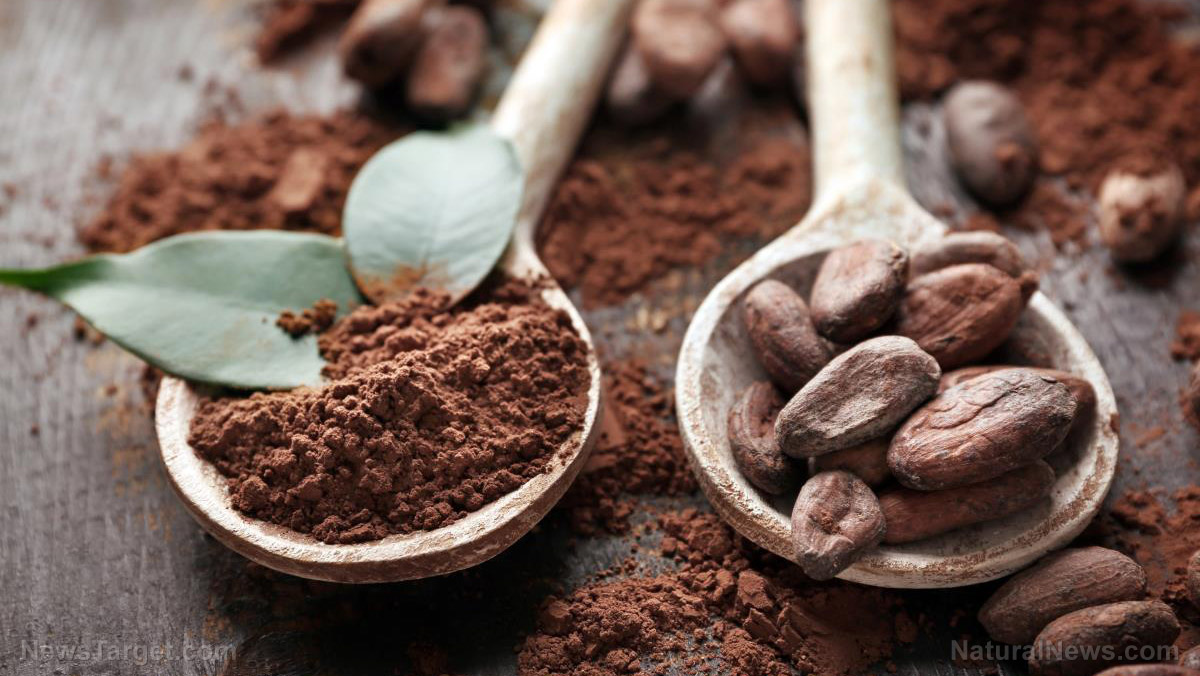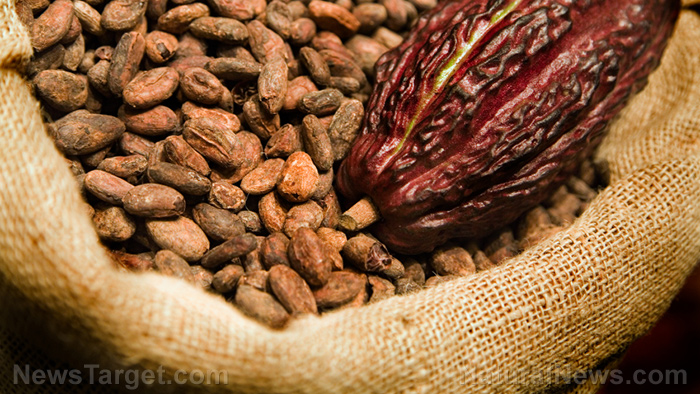Eating “real chocolate” is the key to a healthy heart
12/09/2018 / By Tracey Watson

Could it truly be that besides being one of the most delicious ways to pass the time, eating large amounts of chocolate could reduce your risk of developing heart disease? Well, believe it or not, that’s exactly what scientists from the University of Cambridge have discovered. In fact, doing so could actually reduce your risk of heart disease by as much as a third. And yes, you understood correctly when you read “large amounts of chocolate.”
This exciting discovery was presented at the European Society of Cardiology congress in Paris recently, and the study was published in the online version of the British Medical Journal (BMJ). The researchers drew their conclusions after a meta-analysis of seven randomized controlled trials and observational studies which involved more than 114,000 participants. The scientists simply compared those with the highest chocolate consumption to the group which consumed the least chocolate to determine the risk of developing cardiometabolic disorders, which include coronary heart disease, stroke, metabolic syndrome and diabetes. They discovered that five of the studies showed a link between increased chocolate consumption and reduced risk of cardiometabolic disorders, and found that the group that ate the most chocolate had a 37 percent lower risk of developing heart disease, and enjoyed a 29 percent reduction in their risk of having a stroke.
Interestingly, the study made no distinction between dark and milk chocolate, and even included chocolate found in drinks, desserts and biscuits.
The researchers, however, did stress the importance of not viewing chocolate as some kind of magic bullet to prevent heart disease — lifestyle and diet are still the most important factors in reducing the risk of disease. In fact, the authors pointed out that consuming too much chocolate could lead to weight gain, which in turn could cause diabetes and heart disease, anyway.
Of course, much of that risk relates to the high calorie and sugar content in the biscuits, desserts and milk chocolate they included in the trial. To really reap the benefits of chocolate, one should stick to eating organic dark chocolate, the cocoa in which is one of the most potent superfoods on the planet.
Scientists have isolated over 350 different chemicals in cocoa, many of which have powerful anti-inflammatory and antioxidant properties. Cocoa is incredibly high in polyphenols, but the lighter the chocolate, the more processed it is, and the fewer of these polyphenols that remain. That’s why it’s so important to choose the darkest, most unprocessed chocolate possible. Dark chocolate is also naturally lower in both sugar and saturated fat.
A study from the U.K., which followed 21,000 residents of Norfolk, England for over a decade, found that among those who ate the most chocolate, only 12 percent went on to develop or die from cardiovascular disease, compared with 17.4 percent of those who ate far less chocolate. Interestingly, the group that ate the least chocolate also weighed more, had more inflammation, was less physically active, had more diabetes patients, and consumed less healthy fat than those who ate the most chocolate.
Studies have found that cocoa protects heart health by lowering blood pressure, preventing clotting and decreasing body weight, among other things. It also reduces stress and promotes alertness. Another important benefit is cocoa’s ability to reduce insulin resistance and increase insulin sensitivity, thereby helping to stave off diabetes.
It really would seem, then, that there is absolutely nothing stopping you from adding some organic dark chocolate to your daily diet. In fact, you can do so guilt-free, knowing that you are reaping the incredible health benefits of the “food of the gods!” Read Chocolate.news to stay informed about the health benefits of chocolate.
Sources:
Tagged Under: Cacao, cardiometabolic disorders, cardiovascular health, Chocolate, cocoa, dark chocolate, heart disease, heart health, polyphenols, stroke




















